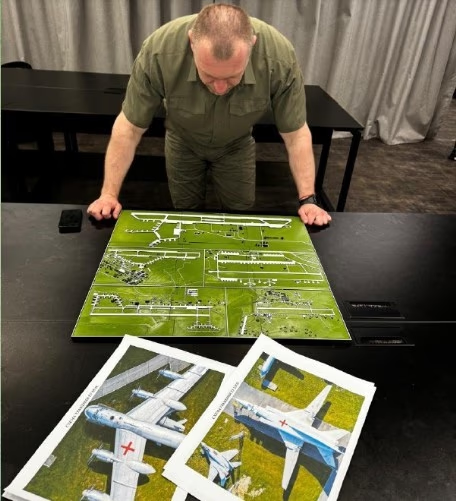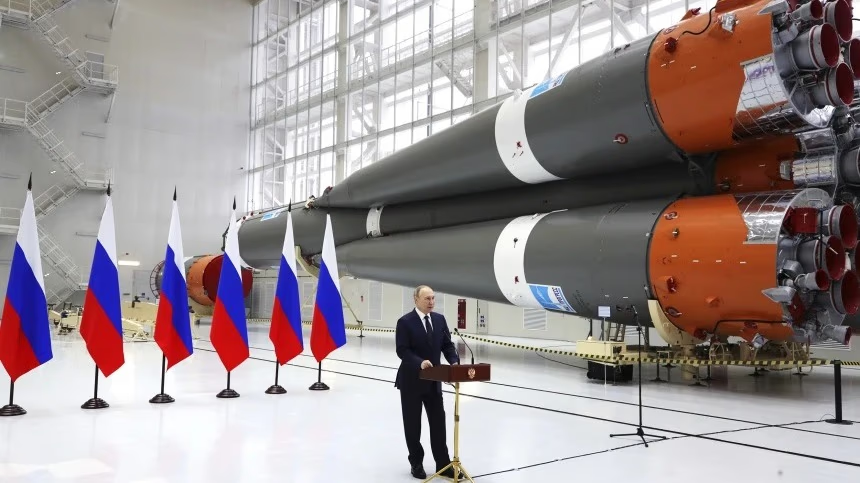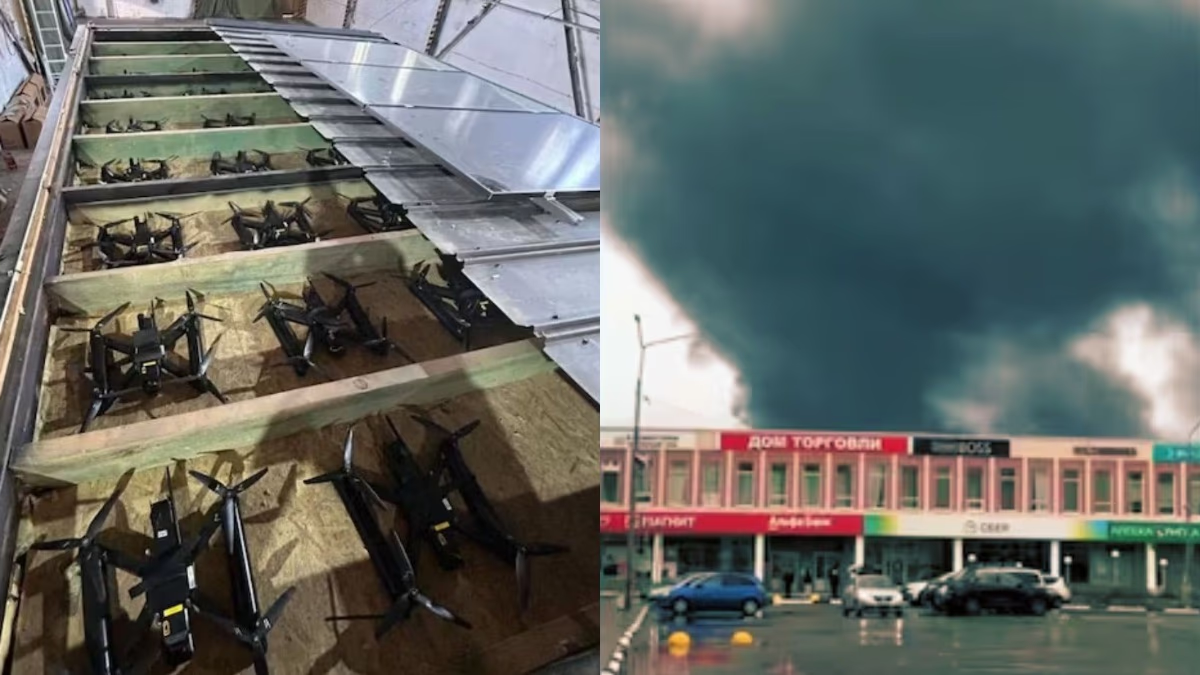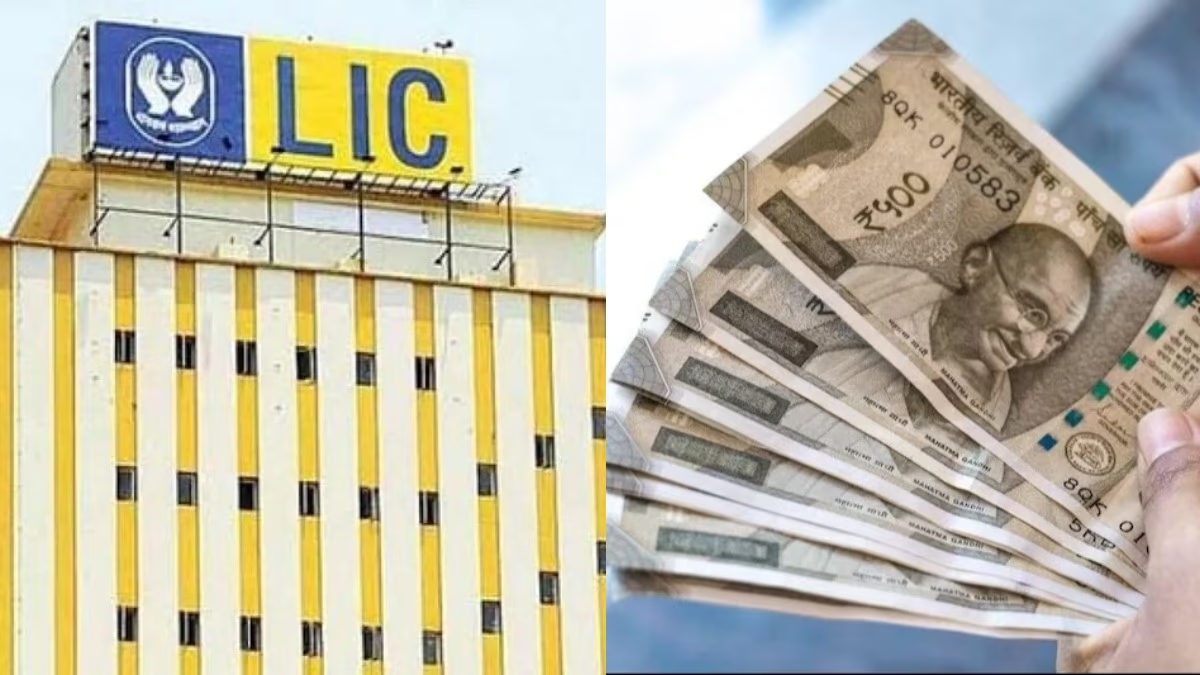The wisdom from the ancient Chinese philosopher Sun Tzu's book on the art of war, written 2,500 years ago, resonates with the 21st century. Sun Tzu writes in 'The Art of War': "When real battles are ongoing and victory is delayed, weapons lose their edge and soldiers become weary. In prolonged warfare, nations exhaust their resources."
After Ukraine's recent drone attack on Russia, similar questions might be swirling in the mind of Russian President Vladimir Putin. How will the 72-year-old, who has ruled Russia for 25 years, respond to this bold move by Ukraine? Will Putin's retaliation be so severe that it invites a global conflict?
41 Long-Range Bombers Destroyed, $7 Billion Loss
On June 1, 2025, Ukraine struck deep into Russian territory, covering 4,000 kilometers. Ukraine claims that major Russian airbases at Belaya, Dyagilevo, Ivanovo, Olenya, and others were devastated in the attacks. Ukraine's secret agency SBU states that 41 long-range bombers were destroyed in this missile attack, their burning remnants now viral in the media.
This was one of the largest drone assaults aimed at weakening Russia's military assets. Ukraine has dubbed this operation 'Spiderweb.' SBU estimates that this caused a staggering $7 billion damage to Russia.
Russia has labeled Ukraine's action as an "unprecedented provocation." The Kremlin has hinted that President Vladimir Putin will respond. Notably, this attack occurred right before the proposed peace talks in Istanbul on June 2, complicating the discussions.
Ukraine Takes a Significant Military Risk
In an effort to break the three-and-a-half-year stalemate, Ukraine made a 'daring' and high-risk military move. Similar actions have been attempted by Ukraine before but without success. According to Russia Today, Ukraine launched attacks on Kharkov and Kherson in 2022, marking its only successful campaign. In response, Russia captured four additional Ukrainian territories.

Source: aajtak
In 2024, Ukraine tried to establish a foothold in Russia's Kursk region but was pushed back into its own Sumy Oblast.
The airbase attack on Sunday marks another turning point, foreshadowing a potential retaliatory move by Putin, with a pattern all too familiar.
What's Next for Putin?
The recent attack and images of blazing Russian bombers challenge Russia's military pride. This strike, enabled by NATO-supplied weapons and intelligence, could be viewed by Russia as Western intervention.
To recover its image, Russia may resort to cruise missiles and hypersonic weapons like Kinzhal in its retaliation.
Russia also has Yars nuclear missiles, a three-stage solid-fuel missile capable of carrying multiple independently targetable reentry vehicles, each housing a thermonuclear warhead.
While the sudden use of nuclear weapons seems unlikely due to global devastation concerns, Russia's immediate military response might target Ukraine's military and energy infrastructure, aiming to weaken Ukraine's drone and missile capabilities and disrupt NATO support.
The Threat of World War III
In a video marking 25 years of his rule, Putin asserted, "We possess enough power and means to conclude what started in 2022 as per Russia's expectations." Undoubtedly, this statement is open to interpretation.
Putin is displeased with NATO's intervention in Ukraine. He previously stated that NATO's involvement could lead to "the destruction of civilization." In May 2024, Dmitry Medvedev warned of nuclear warfare.
If Russia deems this attack a NATO challenge, Putin may act unpredictably.
This concern has been echoed by US President Trump and other top strategists.
Trump has warned of the conflict escalating into a third world war. Former CIA Director William Burns mentioned that by the end of 2022, there was a moment when it seemed Russia could use nuclear weapons against Ukraine, a claim Moscow later denied.
Russia and Germany's Tensions
Russia's major discontent lies with Germany, which fearlessly supplies Ukraine with weapons. According to Al Jazeera, Germany's Foreign Minister Johann Wadephul indicated last Tuesday that his country might supply Ukraine with Taurus missiles capable of striking 1,000 kilometers.
German Chancellor Friedrich Merz took an even bolder stance, announcing no time limits on the range of missiles Germany could supply to Ukraine.
Notably, Germany is a key NATO member. During Ukrainian President Zelensky's visit to Germany on May 28, Merz stated that Germany would help Ukraine develop long-range missiles.
Undoubtedly, Germany's statements are intensifying tensions between the two nations.
On August 14, 2024, Putin issued a stern warning, saying, 'We have been patient, hoping for normalization, but Kyiv and their NATO masters have chosen to escalate the conflict. Well, we will respond. Our enemies will be annihilated. Sadly, we have no other choice.'
Amidst this geopolitical tension, NATO's role remains crucial. Misunderstandings between NATO and Russia could increase the risk of full-scale war.
On March 18, 2024, following his reelection, Putin warned in a speech that if NATO countries directly intervened militarily in Ukraine, it could lead to a massive conflict resulting in "the destruction of civilization."
Russia perceives NATO's expansion as Western encroachment into Russia's sphere of influence. In this scenario, Ukraine's attack and Russia's response exacerbate tensions, but peace talks, economic costs, and nuclear deterrence may still prevent a global war.




